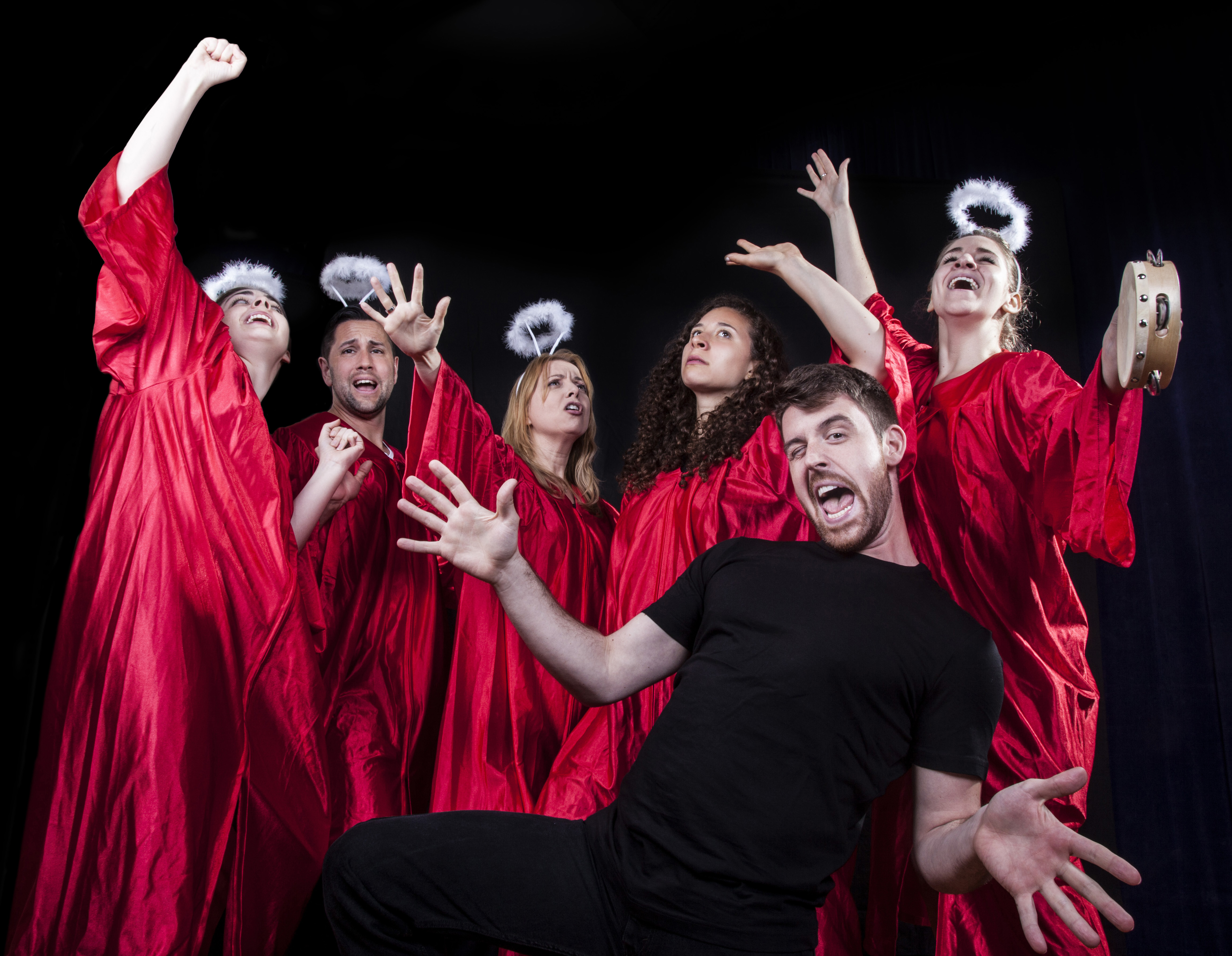
BY SCOTT STIFFLER | Take a hike, TKTS. Put a brick in it, Ticketmaster. Keep your pablum, “Phantom.” For less than what it costs to stand at the back of a Broadway house, you can sit in the air-conditioned comfort of a Downtown theater while watching a FringeNYC performance — and have a decent chance of eyeing someone who will one day grace a prohibitively expensive Midtown stage, or charm their way onto your smartphone screen (fans of Bradley Cooper, Melissa Rauch and Morgan Spurlock can attest to that). But this 16-day marathon of dance, comedy, drama and uncategorizable lunacy is more than just a breeding ground for things to come.
Year in and year out, the festival plays canary to popular culture’s coal mine. With that in mind, our totally subjective roundup corrals this year’s zeitgeist into a few notable categories. It’s by no means complete (at 200 shows, how could it be?), but it does represent intriguing work from known quantities and risk-worthy prospects. One thing’s for sure: at $18 per show, a shot in the dark at FringeNYC beats the buyer’s remorse of an expensive Broadway misfire.
FringeNYC shows run Aug. 14–30, 2 p.m.–midnight weekdays, noon–midnight on weekends. Single tickets are $18. $85 for a Fiver Pass, $150 for a 10-show Flex Pass and $500 for an unlimited Lunatic Pass. For the full schedule of shows and to purchase tickets, visit FringeNYC.org. Also purchase at FringeCentral, inside the City Lore cultural heritage center (56 E. First St. btw. First & Second Aves.), daily from 2–8 p.m. Order on your smartphone up to 30 minutes prior to performance, at FringeOnTheFly.com.
OLD, NEW & TRUE TALES OF NEW YORK
Bygone Theatre raised funds for their Fringe show by, of all things, putting on a show in their hometown of Toronto, Canada. The adults-only “Retro Radio Hour: Sin and Sensation” staged vintage radio plays, along with period-appropriate music and amazing feats of prestidigitation. The fully funded result is “Kill Sister, Kill!” — in which a determined nun struggles to do the Lord’s work in that infamous ground zero of depravity: 1970s New York City. When our good sister’s reunion with her estranged biological sister is interrupted by a shocking act of violence, the meek woman of God adopts a new habit: revenge. Oh, and it’s a musical (specifically, a “Psychotronic Hell-trip of Song, Sleaze and Revenge!”). “The Great Forgotten” is a multi-media drama taking place in another of Gotham’s infamous bygone eras: the roaring twenties. Flappers, bathtub gin and jazz are among the period-appropriate elements of culture shock that greet two graduates from Bellevue nursing school, just back from witnessing the horrors of World War I.
Broadly built, ballsy by nature and sitting on a vault of stories that make the most gritty “Law & Order” episode seem utterly vanilla, native New Yorker Mark DeMayo made a smooth transition from NYPD cop to NYC comedian. Since retiring after 20 years on the force (seven as a police officer, the rest as a detective), he’s brought his mouthy, Type A flair for true storytelling to stand-up and theatrical venues (including Gotham Comedy Club and Peoples Improv Theater). “The Broccoli Murder, DiCaprio Dance and Other Stories from my 20 years as a NYC Cop” blends the best of DeMayo’s dangerous and disturbing tales from his days in blue with candid observations about adjusting to civilian life without pepper spray and a gun strapped to his hips. Especially funny is a bit alluded to in the title, in which he meets Leonardo DiCaprio in a trendy club. Pressed into service as a dance floor bodyguard, he keeps Molly-trippin’ fans at bay while marveling at the surreal notion of playing Kevin Costner to Leo’s Whitney Houston. Loopy performer and SOLOCOM fest founder Peter Michael Marino, back from taking his own show to the Edinburgh Festival Fringe, directs.
“Hank Leaves Home” is Erik Heger’s solo show developed in collaboration with director Leslie Felbain. The notion of a socially awkward, homeless harp-playing tramp stuck in neutral as he works the NYC subway system has been percolating since 2002, when the team first met at the American Conservatory Theater in San Francisco (he as a grad student, she as a faculty member). Categorized by FringeNYC as a “Clown/Mask” show (aka highly physical and visual), this concert/theater performance showcases skills from Heger’s eclectic resume: actor (John Proctor in “The Crucible”), clown (in Speigelworld’s “Vegas Nocturne” at the Cosmopolitan Hotel in Las Vegas), and harpist (opening for Roberta Flack and Lou Reed at the Apollo).
Jell-O shots, slave labor, butterfly tattoos, Krishna and Afghanistan are the thematic hooks in “Hearts Afire” — an intimate evening of harrowing, inspirational true tales told by five NYC community college students. “Liminal” takes a fresh-out-of-college poet, transplants her to NYC, and tasks her finding her voice. She’s not alone, though — overtures from a potential love interest and taunts from a Greek chorus of blue collar workers will prompt this “foot soldier of gentrification” to define her place in the world. Producing entity Bedlam Ensemble was responsible for 2014’s “Tennessee Williams Project,” which reimagined the playwright’s seldom-performed one-acts.
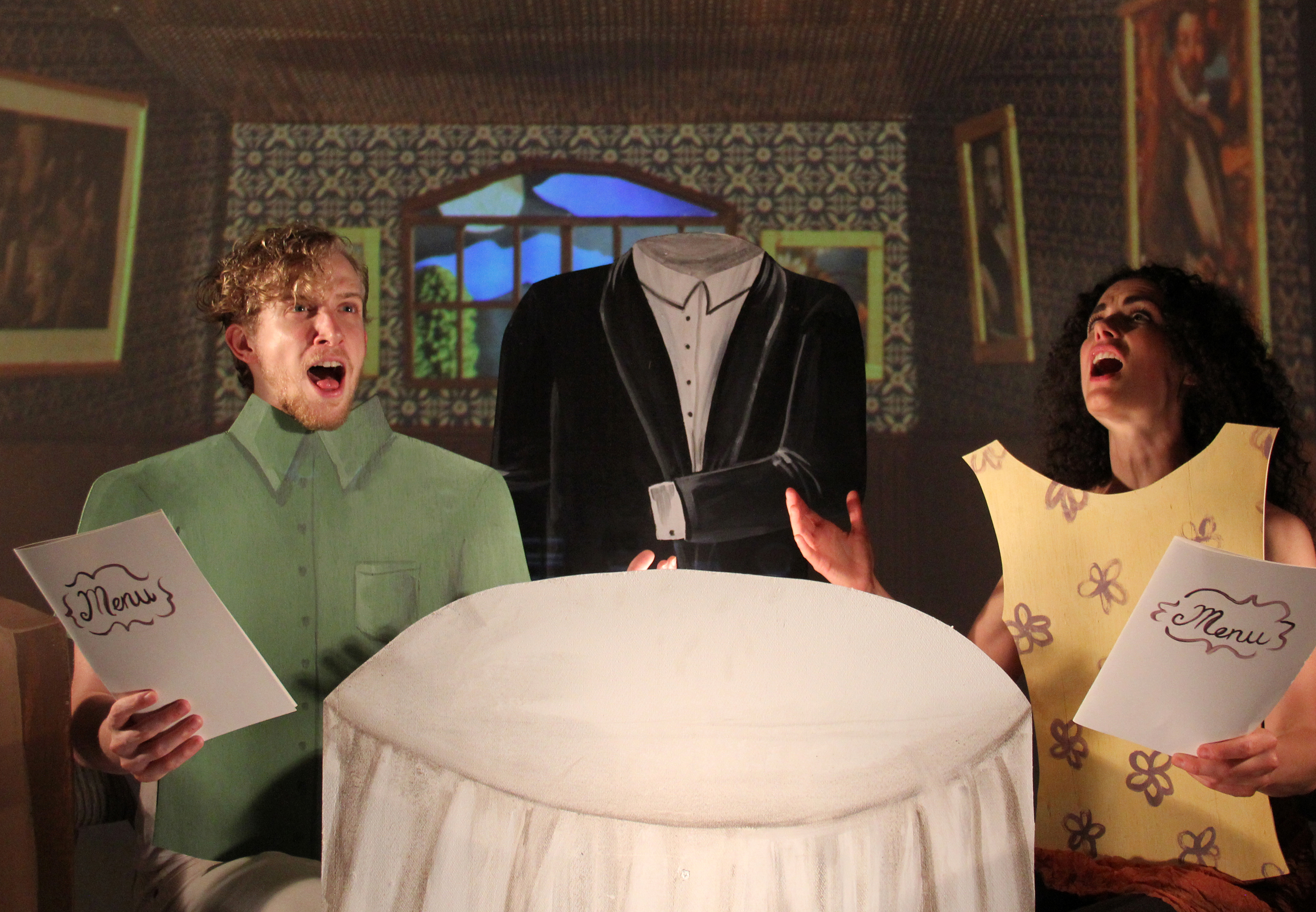
Three musical productions make NYC central to their story, or at least vital to its flavor. A contemporary pop score for “Love in the Middle Ages” charts the ups and downs of six men and women of a certain age, who meet at a Manhattan singles mixer. Eric Kornfeld, who wrote the book and lyrics, teaches Cabaret at Primary Stages and has a mountain of credits that bode well for this project — including the writing of Bette Midler’s HBO special and Vegas extravaganza, “The Showgirl Must Go On.” Matters of the heart also figure into the title (and the marrow) of “Love is Like Mud,” which leavens the implications of its ominous title with hefty doses of sex, humor and music. Brooklyn band Level II plays the music, and all of the parts, in this visually kinetic operetta chronicling the coupling of lonely Jon and Annie, twentysomethings with cramped apartments and oversized libidos. A clever stick puppet video on loveislikemud.com previews the show’s wry courtship song, “Excellent Choice” — which turns the wine and entrée negotiations of a dinner date into an à la carte assessment of their partnership potential. Serious Theater Collective’s “The Magic Jukebox: New York City World Tour” features 12 musical vignettes from the comedy troupe that gleefully eviscerates everything from dolphin language, to false gods, to flash mobs. A live band backs the sketch players, as they bounce from R&B, to hair metal, to gospel and beyond.
SCIENCE & FANTASTIC FICTION
Long-winded but undeniably compelling, You Said Your Damn Ninja Would Take Care of Robocop Productions is, we get the feeling, just a wordy front for a pop shop owned and operated by Queens-based writer, performer, YouTube darling and Shaolin kung fu disciple Shyaporn Theerakulstit. His geek-think solo show — “The Absolutely True Science of Nerds” — plows through its 90 minutes by delivering “completely scientific” lectures on the real-world implications of becoming Batman, and the relative merits of the “Star Wars” and “Star Trek” universes. Assuming you haven’t passed out at that point from a techie tizzy, the show’s closer is a rumination on the behavioral patterns and biological origins of Japan’s “Hyper-evolved Theropod Kaiju” (better known to his frenemies as Godzilla). Not enough spectacle, you say? Theerakulstit also promises music, burlesque and special guests — plus what will almost certainly be a very argumentative Q&A session.
With visual motifs inspired by video games, kabuki, horror movies and Pixar shorts, “Dungeon” uses puppetry and multi-media to take its young hero on a rescue mission/quest. Part of the FringeHIGH series of programming appropriate for teens, “EverScape” finds four gamers escaping their bleak, everyday lives by immersing themselves in an online fantasy world of epic battles. Things get real (or do they?) when their expertise presents them with the opportunity to explore the W-2 world of gainful employment, as game developers. The show’s press info is deliberately unclear about their fate, but at least one festival entry indicates that obsessives can come out of their shells — as in, where one man has not gone before — thanks to the fictional world they prefer to inhabit. “The Universe of Matt Jennings” is a tale of gay awakening told from a Trekkie’s point of view, with our man Jennings in classic “Star Trek” attire, confidently seated at Kirk’s NCC-1701 command chair, as he recalls his (five-year?) mission to boldly explore black, white, Christian, queer and artistic identity. Make it so, Matt!
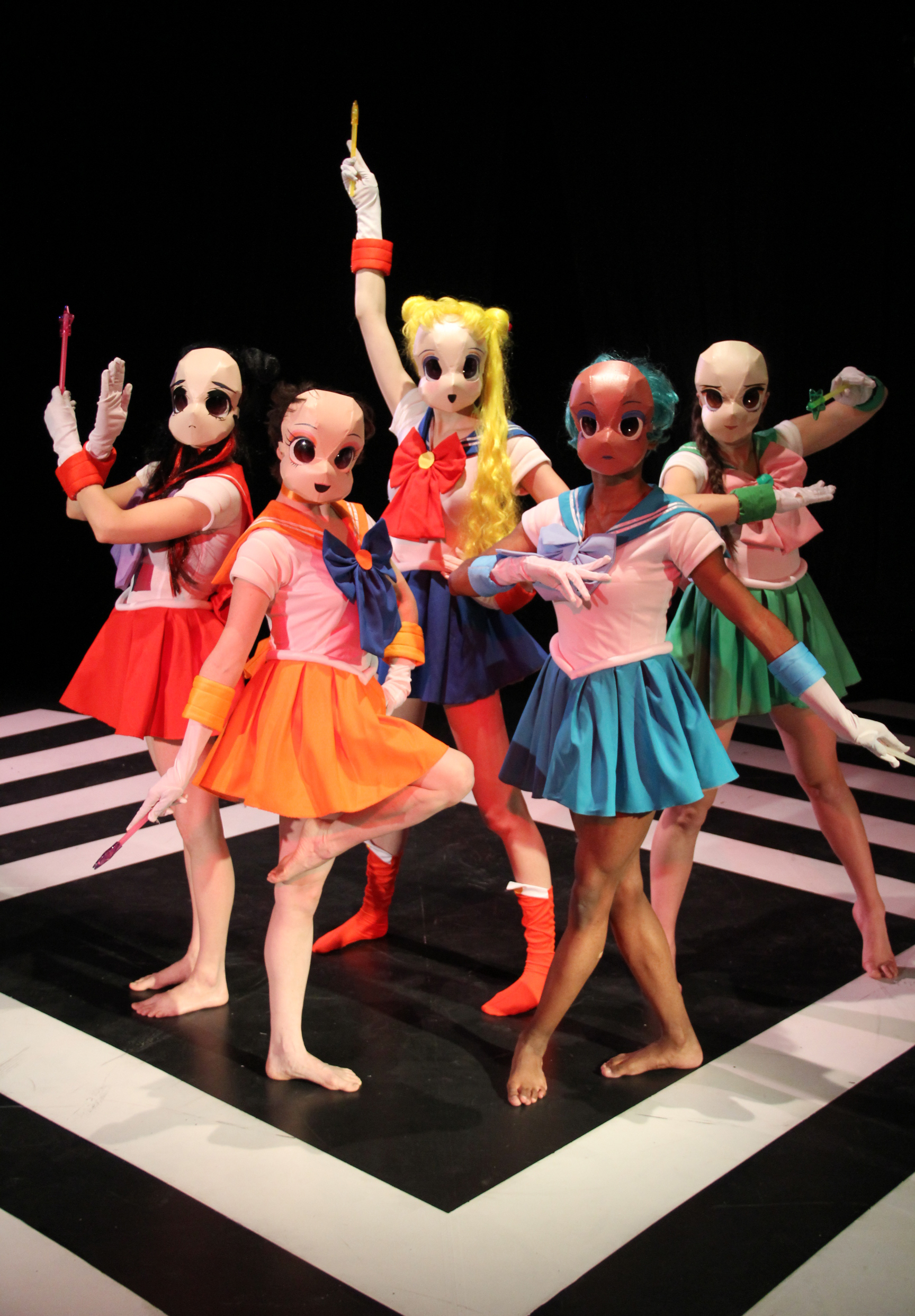
Quasimondo Milwaukee Physical Theatre brings its Adult Content Warning-worthy blend of manga and anime to Clinton Street’s Celebration of Whimsy stage, when the sizable ensemble unleashes “Kamikaze Cutesauce Cosplay Club” upon the good citizens of Gotham. Director and co-choreographer Brian Rott founded the troupe along with likeminded MFA candidates at Italy’s Accademia Dell’Ar, then claimed Laverne & Shirley’s home turf after touring Turin, Milan, Arezzo, Cortona and Berlin. The result is a physically intense stage show whose dizzy, hybrid sensibility uses movement, puppetry and martial arts to “explore contemporary costume play and the threads that form gender, identity, and culture.”
A HIGH L, G, B, T or Q QUOTIENT
Set in the 1960s in one of Fidel Castro’s brutal UMAP (Military Units to Aid Production) prison work camps that warehoused gays, alongside political and religious dissenters, “Julian & Romero” is written by Alex Perez, whose grandfather was killed while protesting Castro’s revolution. “It’s not just a Cuban story, but a human rights issue that connects on many levels, even today,” he says. The title characters are childhood friends, now with different perspectives on sexuality, faith and culture. The play, which incorporates music and dance of the period, was nurtured during a 2013 run in Theater for the New City’s Dream Up Festival (happening this year Aug. 30–Sept. 20). Storyteller Matthew Dicken, an out-since-13 American, mashes his own sensibilities with those of “The Seven Men I Came Out to in India,” as he travels the subcontinent during a quest to “relearn to see queer” and “claim his mythic ancestors.”
Self-examination of sexuality isn’t a choice for the characters in “Endless Air, Endless Water,” which finds two astronauts in a space capsule with nowhere to hide, let alone run, when their workplace fling is exposed on national TV. Andrea Alton, whose Molly “Equality” Dykeman persona was a featured act in Dixon Place’s recent HOT! Festival of LGBTQ theater, adds 12 more to her stable of characters, with “Possum Creek.” Set in the titular Ohio town during the Civil War era, it begins by focusing on a naive bride, then spans three decades during which she contends with “lost husbands, babies of uncertain parentage, man-on-man carnality, plagues, and a beloved pig.”
DEAD WRITERS, REAL PEOPLE AND ACTUAL EVENTS
A skull with a clown nose serves as the promotional graphic for playwright Anthony P. Pennino’s “I, Horatio.” Accompanied by a diagonal dagger in each black eye socket, the festive red schnoz is a fitting image for this comedy/drama. Pennino’s interpretation of Horatio from “Hamlet” implies more than just platonic loyalty and admiration at play, when the grieving confidant goes on a mission to grant his prince’s dying request to “draw thy breath in pain to tell my story.”
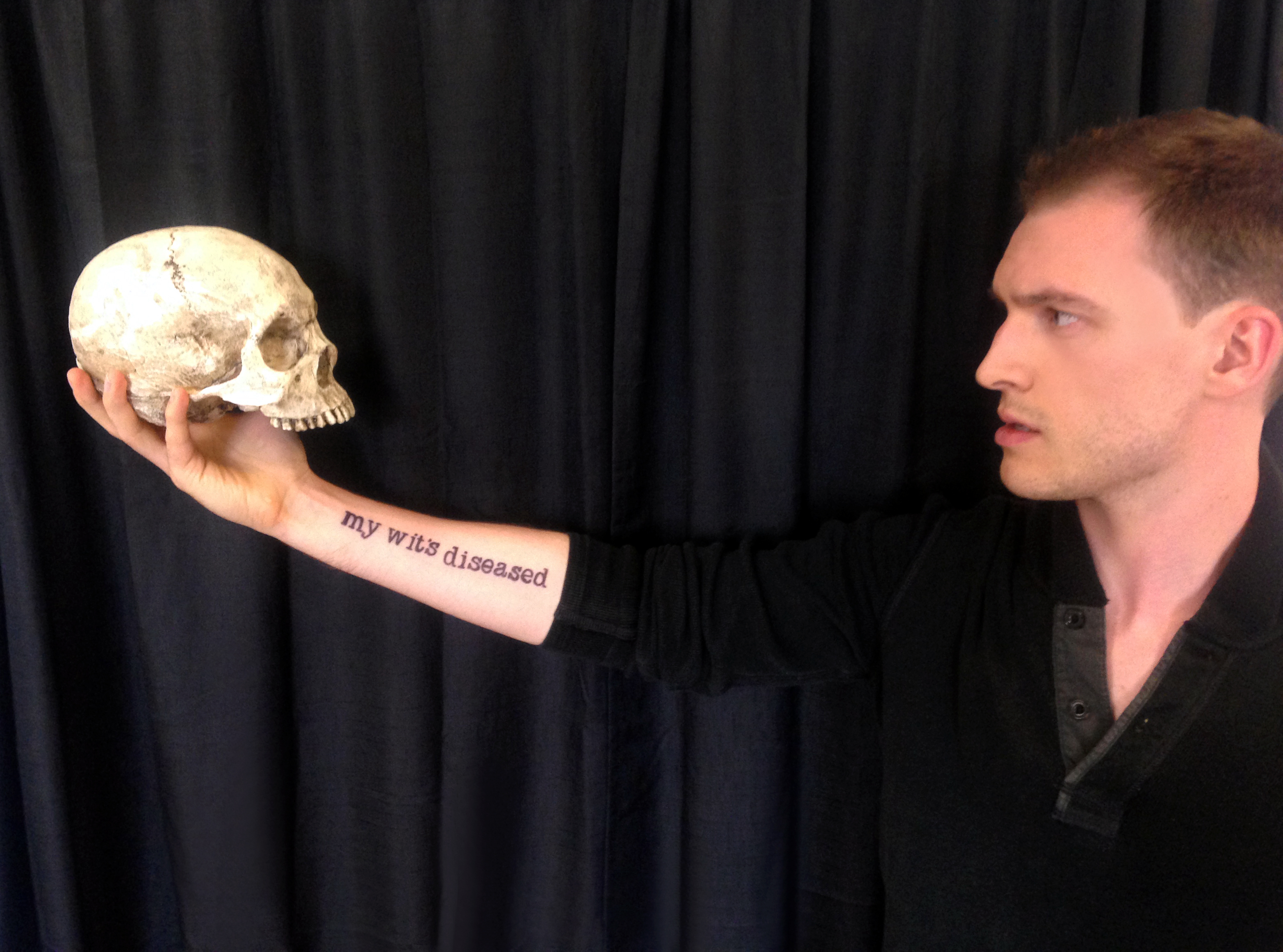
Shakespearean verse gets a contemporary reboot, when Queens-based Feast Productions unleashes “Hamlet the Hip-Hopera.” The core plot remains, but iambic pentameter is replaced with the strikingly similar cadences of hip-hop — making maximum use of the genre’s knack for advancing narrative and invoking metaphors in the same breath. Rap battles, dueling verses, slam poetry and soaring ballads bring new energy and lyricism to familiar characters under siege and descending into madness.
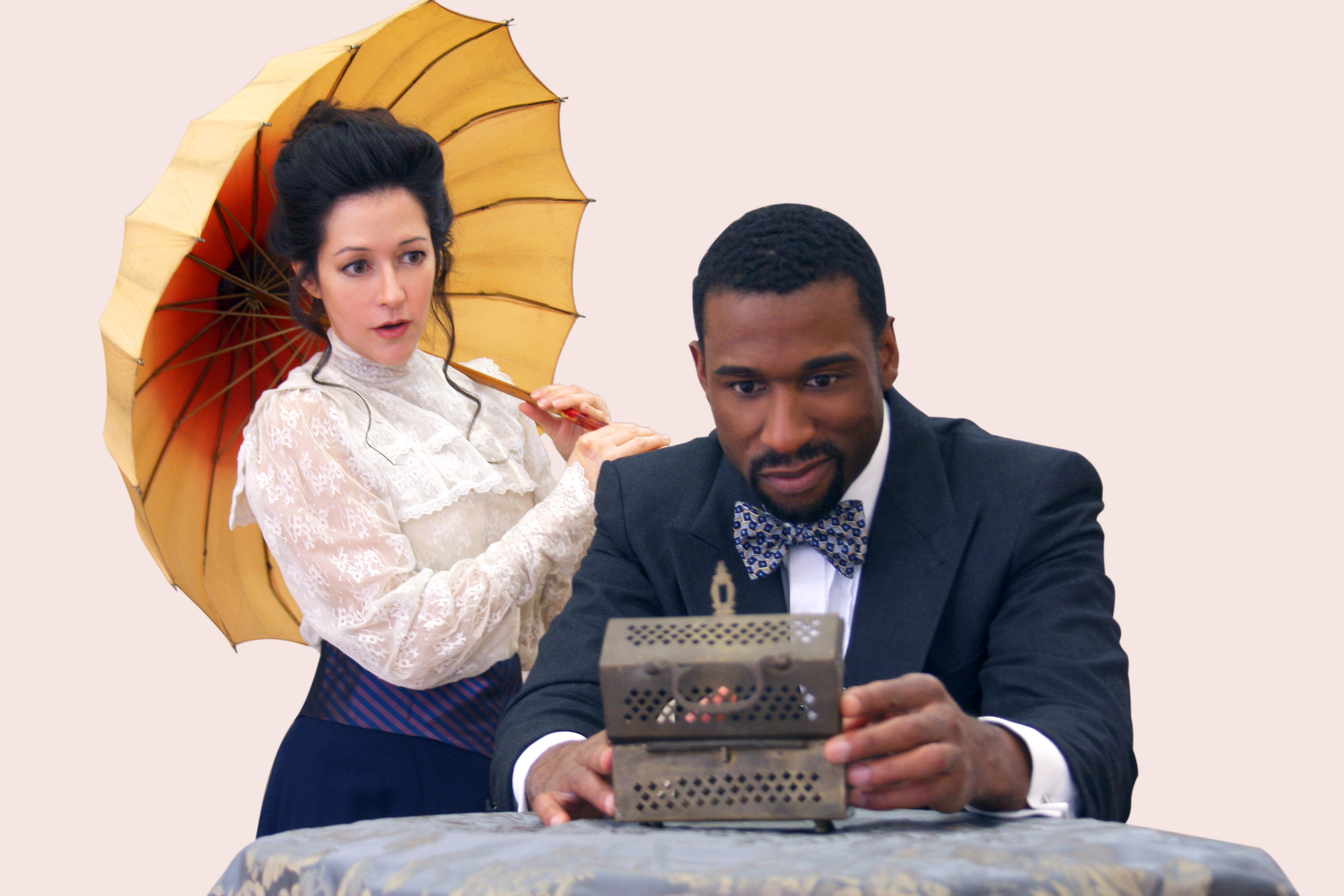
Taking place in Tompkins Square Park, “The Merchant of Venice (or how not to live in a multi-cultural world”) is one of four FringeAL FRESCO shows. Bigotry, a fractured legal system and the nature of justice figure heavily into Hip to Hip Theatre Company’s take on what they call “Shakespeare’s darkest comedy.” This free outdoor production is appropriate, given the Company’s mission to perform no-cost and family-friendly classics in their home borough of Queens.
Ann Starbuck’s solo show “Tiananmen Annie” is based on events she experienced in 1980s Beijing — first as a student, then working for CNN during the Tiananmen Square Uprising. A FringeHIGH entry, the spoken word/poetry piece “The Broken Record” addresses violence between black youth and the police, expressing the “fury, helplessness, and grief we feel watching these stories play on repeat” while contemplating how to prevent this familiar, often fatal pattern.
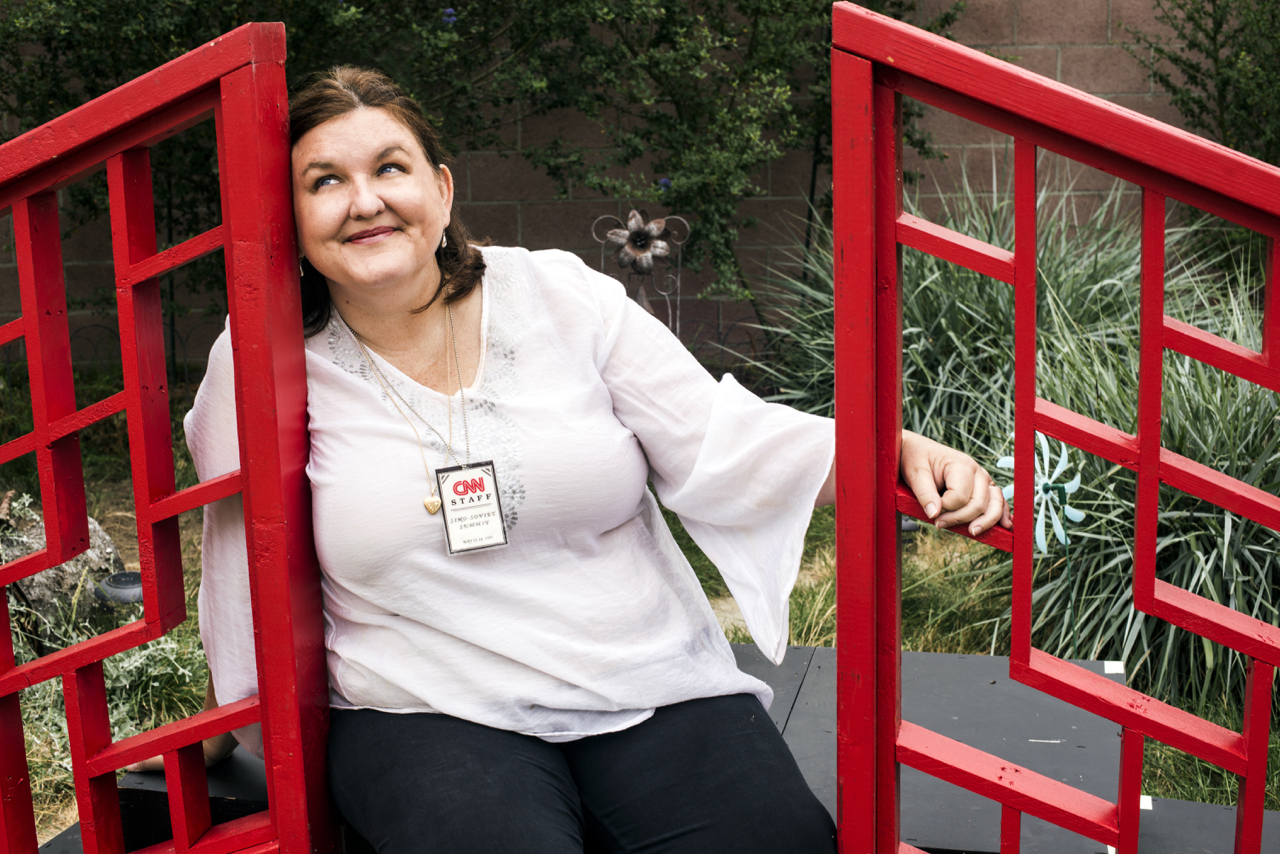
Set on a hot Los Angeles night in 1992, writer and director Tess R. Ornstein’s “Cherubim” finds parallels between the reaction of a multi-racial family following the disappearance of five-year-old Kea Charmichael and the Rodney King riots.
Playwright and director Delaney Yeager pays tribute to Samuel Beckett, by stranding her all-female cast in the middle of nowhere as a means to explore friendship and empowerment in the face of the unknown, in “Waiting for AAA.” Years before British writer Roald Dahl created worlds of wonder and menace (“Matilda” and “Charlie and the Chocolate Factory”), his real life played out like an Ian Fleming novel. “Yesterday Was Beautiful” fleshes out the period in World War II when Dahl — a spy on her Royal Majesty’s dole — visited Washington on cloak and dagger business, and in the process bedded (the married and older) Congresswoman Clare Booth Luce.
Scandal somehow eluded the prolifically priomiscuous Dahl, but it was bread and butter for Glenn Milstead — whose drag persona Divine committed some of the most memorable atrocities in cinematic history. “Divine/Intervention” finds the star of John Waters’ still-stunning early-career cult films (including “Multiple Maniacs” and “Polyester”) alone on the night of his death, wrestling with the demons that lurk just beyond the mascara. Bobby Goodrich stars, with a script by E. Dale Smith based on an original concept by the show’s director, Braden Chapman (aka Mimi Imfurst, a longtime and formidable presence on the drag and cult theater circuit). Writer and performer Jay Malsky takes liberties with the star of “At Liberty,” when he brings one of Broadway’s most brassy, belated broads back for one final tour. “Elaine Stritch: Still Here” looks every bit the safe bet, as evidenced by fundraising clips on the show’s Facebook page. Hunkered down at the piano, Stritch sings for her supper by granting a donor’s request to hear the “Charles in Charge” sitcom theme. “I don’t like things that aren’t about me,” she says, barely making it past the first verse, “so sometimes I make them about me even if they’re not.” What follows is a good example of what you’ll get at FringeNYC, and reason enough to go.

































